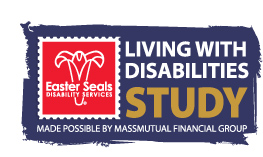Understanding Harry Potter and the Deathly Hallows
by Beth Finke
What can a Harry Potter movie teach us about autism? Ask James Williams, a young man with autism who gives speeches about the syndrome at conferences. The transcripts to all of the speeches James gives are available at his Web site — that’s where I found out how someone with autism could relate to the characters in Harry Potter books and movies. In his cleverly-titled speech, “Harry Potter and the Chamber of Autism”, James describes how Harry Potter sometimes has trouble approaching his friends. James can relate. He also relates to Hermione, who obsesses over wizardry, fixates on specifics and is often accused of being a know-it-all.
Most importantly, James says that Harry’s feelings of relief after being “diagnosed” as a wizard are similar to his own feelings of relief being diagnosed with autism. Before Hagrid told Harry that he was a wizard, Harry had no idea that wizards who are angry tend to use magic even if they do not want to.
“Kids with autism often make things happen that they can’t explain,” James says. “And if they don’t know they have autism, they don’t know why, no matter how hard they try, they are always getting in trouble.”
Harry did well when working with teachers who acknowledged and worked with his special talents and needs. James can relate. Reviews of the new Harry Potter and the Deathly Hallows: Part 1 say the movie isn’t for the casual Harry Potter fan — it makes references only Harry Potter devotees will understand. James Williams is in his early 20s now. He grew up with these characters. My hunch is that he will have no problem with this new movie. He’ll understand it perfectly.







 The incoming 112th Congress brings many new faces to Washington, D.C. Easter Seals pledges to work with returning and new members on legislation benefiting people with autism and other disabilities.
The incoming 112th Congress brings many new faces to Washington, D.C. Easter Seals pledges to work with returning and new members on legislation benefiting people with autism and other disabilities. Hello from the Easter Seals Annual Convention in Chicago!
Hello from the Easter Seals Annual Convention in Chicago!